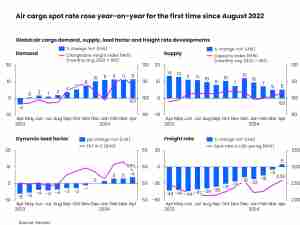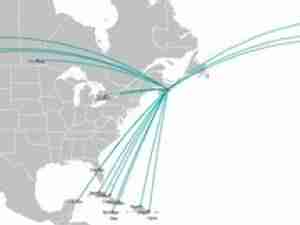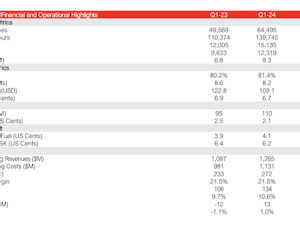United Airlines Holdings Inc. blamed the US Federal Aviation Administration and the nation’s air traffic control system for exacerbating the issues plaguing the industry, saying the agency has been overwhelmed by the volume of flights. The FAA rejected that criticism in a sharply worded rejoinder.
The carrier estimated Wednesday that more than 50% of its delay minutes and 75% of its cancellations in the past four months were because of FAA actions to manage air traffic and flight capacity. Such initiatives include holding aircraft in flight, assigning specific departure times, ground delays and reroutings.
“There are just more flights scheduled industrywide than the ATC staffing system can handle,” particularly in New York and Florida, Jon Roitman, United’s chief operations officer, told employees in a letter. “Until that is resolved, we expect the US aviation system will remain challenged this summer and beyond.”
The FAA pushed back against United’s critique, saying the carrier is conflating two separate issues: air traffic control staff levels and unrelated measures stemming from poor weather. The regulator noted there were no ATC staffing-related delays over July 3 and 4, even though airlines canceled more than 1,100 flights.
“It is unfortunate to see United Airlines conflate weather-related air traffic control measures with ATC staffing issues, which could deceptively imply that a majority of those situations are the result of FAA staffing. The reality is that multiple overlapping factors have affected the system,” it said in an emailed statement.
The United memo highlights tension that has developed between airlines and regulators over who is most to blame for the disruptions. Domestic travel demand has barreled back following the pandemic, packing planes at the same time carriers have faced worker shortages and, in some cases, strong storms that have snarled flights. Fares and consumer complaints have climbed, along with flight cancellations and delays.
Airlines have met with the FAA more than once on the issues, and Transportation Secretary Pete Buttigieg urged carriers going into the July 4 holiday weekend to adopt more reasonable summer schedules. Gridlock also has been particularly bad over Florida, where commercial carriers compete for air space with a growing number of private jets and space launches.
United temporarily cut 50 daily flights out of its hub at Newark, often one of the most-delayed airports in the nation, starting July 1 in an effort to ease congestion this summer. American Airlines Group Inc., Delta Air Lines Inc., Southwest Airlines Co. and JetBlue Airways Corp. all have trimmed summer schedules in an effort to improve operations.










